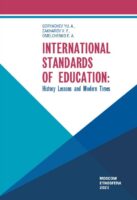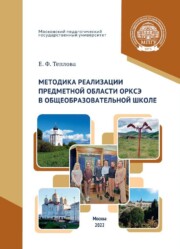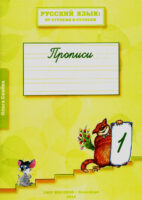Viewpoint by Somar Wijayadasa*
“Every gun that is made, every warship launched, every rocket fired signifies, in the final sense, a theft from those who hunger and are not fed, those who are cold and are not clothed.” – U.S. President Dwight Eisenhower in ‘The Chance for Peace’ address in April 1953.
NEW YORK (IDN) – The arms race has reached a new dimension as the United States President Donald Trump withdrew from the 1987 Intermediate-Range Nuclear Forces (INF) Treaty.
President Vladimir Putin warned, on August 5, 2019, that Russia would respond in kind if the United States develops short and intermediate-range, land-based nuclear missiles following the demise of the Cold War-era arms control treaty.
Putin said, ”If Russia obtains reliable information whereby the United States completes the development of these systems and starts to produce them, Russia will have no option other than to engage in a full-scale effort to develop similar missiles”.
Thanks to a couple of treaties – such as the Strategic Arms Reduction Treaty (START I) and the INF Treaty between the U.S. and the former Soviet Union – the stockpile of nuclear weapons has been reduced from a high of 70,300 in 1986 to a total of 13,865. But 6,185 and 6,500 nuclear warheads, the U.S. and Russia respectively own are ample to scorch our earth several times over.
The world knows the inhumanely destructive power of nuclear weapons that the U.S. unleashed on Hiroshima on August 6 and Nagasaki on August 9, 1945, and from the devastation caused by the accidents in Chernobyl and Fukushima.
Since its inception in 1945, the United Nations strived to abolish nuclear weapons to accomplish its noble goal “to save succeeding generations from the scourge of war”.
Finally, on July 7, 2017, the UN adopted a Treaty for the Prohibition of Nuclear Weapons (TPNW) that seeks to “prohibit nuclear weapons, leading towards their total elimination”.
However, the five nuclear weapons wielding permanent members – USA, Russia, Britain, France and China – of the UN Security Council, body charged with the maintenance of international peace and security, failed to support that noble effort.
In the past, many world leaders – including U.S. Presidents – have spoken in support of banning the nuclear weapon. For example, John Kennedy said that these nuclear weapons “must be abolished before they abolish us”; Ronald Reagan said “We must never stop at all until we see the day when nuclear arms have been banished from the face of the Earth”. Lofty words but no action.
In a 2009 Prague speech, President Barack Obama vowed “concrete steps towards a world without nuclear weapons”. However, after receiving the Nobel Peace Prize for 2009, he committed to spend one trillion dollars over the next 30 years for two new bomb factories, new warheads and delivery systems that Trump plans to upstage.
That impetuous plan pushed Russia, China and other countries to build even more nuclear weapons – especially, when the threat of a nuclear exchange by accident is greater than ever.
The whole world knows about the consequences of the use of nuclear weapons but the power hungry war-mongers (the nuclear powers) pretend to be oblivious to the outcome of a nuclear war.
If the majority of the people of this world despise the nuclear bomb, demand those be eliminated, why on earth do nuclear powers absolutely ignore the UN efforts, disregard people’s wishes, and strive to make more advanced nuclear weapons?
Do they think that more nuclear weapons would resolve the millions of problems – death and destruction from wars, refugees, mass migration, poverty and hunger?
Dispensable military spending on armaments
Saying that the “The world is arming itself to the teeth”, the Stockholm International Peace Research Institute (SIPRI), reported that in 2018, Global military spending rose to $1.8 trillion – the highest level since 1988.
In 2018, the U.S. led the world in military spending reaching $649 billion – i.e. as much as the next eight countries combined. Other big spenders are China ($250), Saudi Arabia ($67.6), India ($66.5), France ($63.8) and Russia ($61.4) – in billions of dollars.
The Economist reported that the boost reflected the Trump administration’s embrace of what it calls “great power competition” with Russia and China—requiring fancier, pricier weapons.
SIPRI reported that the U.S. and Russia export globally over half of all weapons, and “the top 100 arms companies have sold over 5 trillion dollars’ worth of arms since 2002 while China, France, Russia, the United Kingdom and the United States are collectively responsible for over 70% of the arms trade”.
In ‘The Chance for Peace’ address delivered on April 16, 1953 before the American Society of Newspaper Editors, President Dwight Eisenhower, who was a five-star general in the United States Army and served as the Supreme Commander in Europe during World War II, said: “Every gun that is made, every warship launched, every rocket fired signifies, in the final sense, a theft from those who hunger and are not fed, those who are cold and are not clothed.”
This world in arms is not spending money alone, he added. “It is spending the sweat of its laborers, the genius of its scientists, the hopes of its children. … This is not a way of life at all, in any true sense. Under the cloud of threatening war, it is humanity hanging from a cross of iron.”
Military conflicts: Human suffering
Since 1945, there have been some 250 major wars in which over 50 million people have been killed, tens of millions made homeless, and countless millions injured and bereaved.
In 2014, David Swanson wrote in the American Journal of Public Health that, “Since the end of World War II, there have been 248 armed conflicts in 153 locations around the world. The United States launched 201 overseas military operations between the end of World War II and 2001, and since then, others, including Afghanistan and Iraq”.
In 2016 alone, 100,000 people died – at a financial cost of an estimated $14.3 trillion, or 12.6% of the global economy.
Tom Mayer, a peace activist said, “US military intervention has been a calamity in the Middle East. They have destroyed Iraq, destabilized Libya, fostered dictatorship in Egypt, accelerated civil war in Syria, and the destruction of Yemen, and helped squelch a pro-democracy movement in Bahrain”.
After a decade of death, devastation, mayhem and millions of casualties in Iraq and Afghanistan, Presidents Obama and Trump revealed that the wars in the Middle East have cost American taxpayers nearly seven trillion dollars. Where is the promised peace, democracy and freedom?
While such a colossal amount of money is wasted on weapons and military conflicts, the infrastructure of schools, roads and bridges around the world – even in capitalist countries – continue to collapse.
Invest in people: Not in weapons that kill them
According to the United Nations, more than 1.3 billion people live in extreme poverty (i.e. less than $1.25 a day), more than 2 billion people don’t have access to clean water, 22,000 children die each day due to poverty, and 805 million people worldwide (including in capitalist countries) do not have enough food to eat.
UNESCO estimates that 171 million people could be lifted out of extreme poverty if they left school with basic reading skills. And, with even more education, world poverty could be cut in half.
The World Bank estimates that climate change has the power to push more than 100 million people into poverty over the next ten years. As it is, climate events like drought, flooding, and severe storms disproportionately impact communities already living in poverty.
Why don’t we utilize those “trillions of dollars” we waste on weapons and useless wars on more momentous life-and-death issues – to uplift the poor, build crumbling roads and bridges, improve public transportation, provide healthcare, and re-build schools that are falling apart?
President Trump should “walk the talk”
In April, during a meeting with Chinese Vice Premier Liu He, Trump expressed an interest in a new arms control pact with China and Russia to reduce “ridiculous” military spending and arms production.
Trump said, “As you know China is spending a lot of money on military, so are we, so is Russia and those three countries I think can come together and stop the spending and spend on things that maybe are more productive toward long-term peace. I think it’s much better if we all got together and we didn’t make these weapons”.
Though such a noble idea, his dicey actions – largest ever military budget; withdrawal from the INF Treaty that eliminated their intermediate & short range missiles; withdrawal from Iranian Nuclear Deal that rolled back and contained Iran’s nuclear program; dreadful sanctions on Iran, Cuba and Venezuela; sale of military hardware to Saudi Arabia that wages a catastrophic and inhumane war in Yemen; Trade and Tarif wars with several countries, to name a few – are terribly warped.
Join the UN Treaty for the Prohibition of Nuclear Weapons
Before a nuclear exchange occurs by accident, miscalculation or even intent by an unhinged world leader, I wishfully hope that the Nobel Peace Prize aspirant, President Trump, would bring the world leaders together to support the UN Treaty for the Prohibition of Nuclear Weapons to eliminate ALL nuclear weapons.
That may be faster and easier than denuclearizing North Korea or stopping Iran or other “rogue” countries from acquiring the nuclear bomb.
*Somar Wijayadasa, an International lawyer was a UNESCO delegate to the UN General Assembly from 1985-1995, and was Representative of UNAIDS at the United Nations from 1995-2000. [IDN-InDepthNews – 10 August 2019]
Photo: “Against the dark background of the atomic bomb, the United States does not wish merely to present strength, but also the desire and the hope for peace. The coming months will be fraught with fateful decisions… may they be the decisions which will lead this world out of fear and into peace.” (U.S. President Dwight D. Eisenhower in an address to the 470th United Nations General Assembly on 8 December 1953) Credit: UN Photo/MB
IDN is flagship agency of the International Press Syndicate.
facebook.com/IDN.GoingDeeper – twitter.com/InDepthNews









